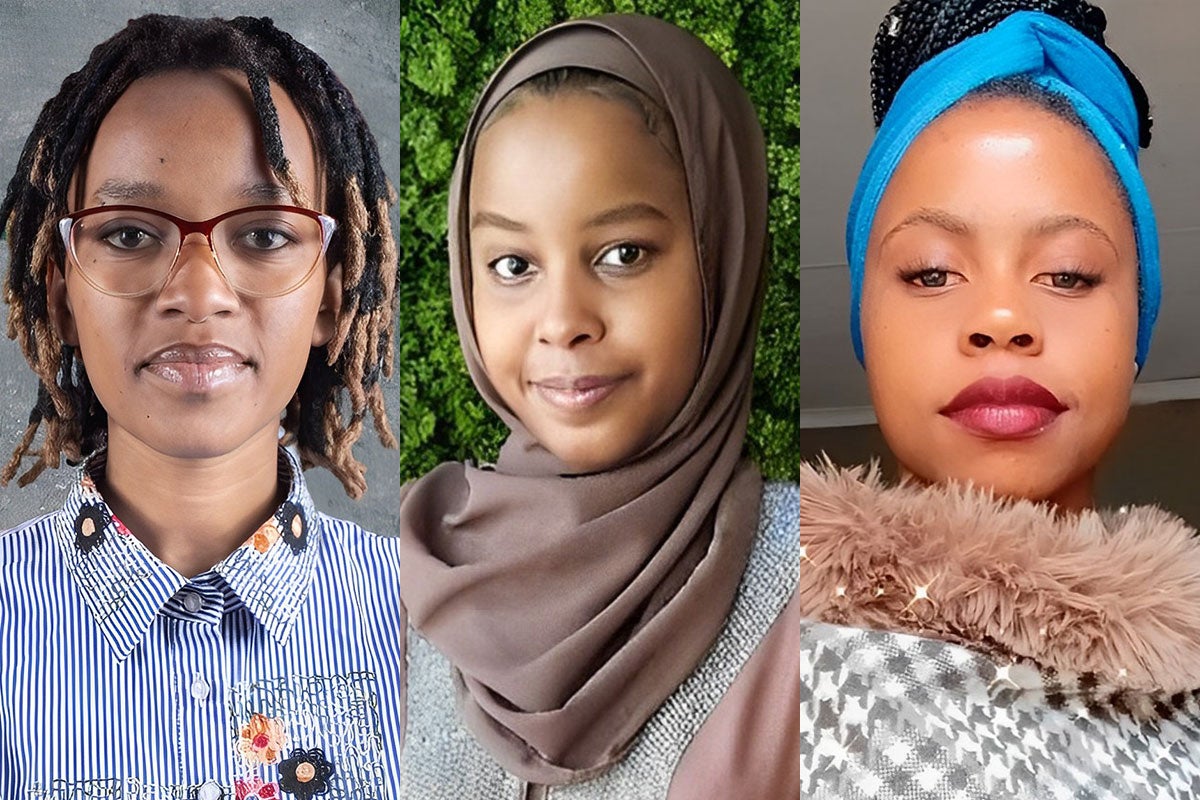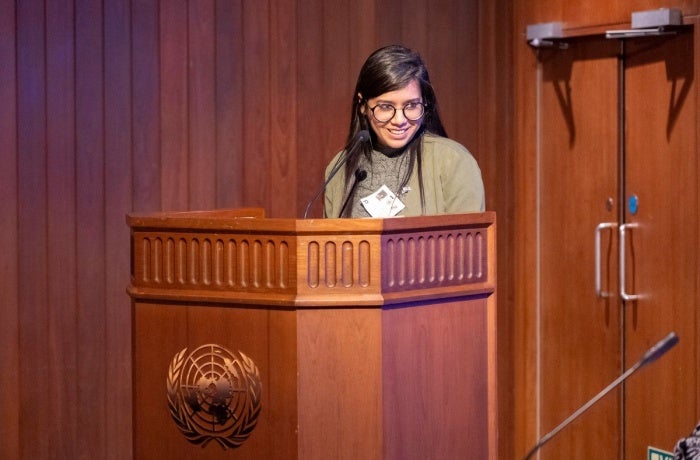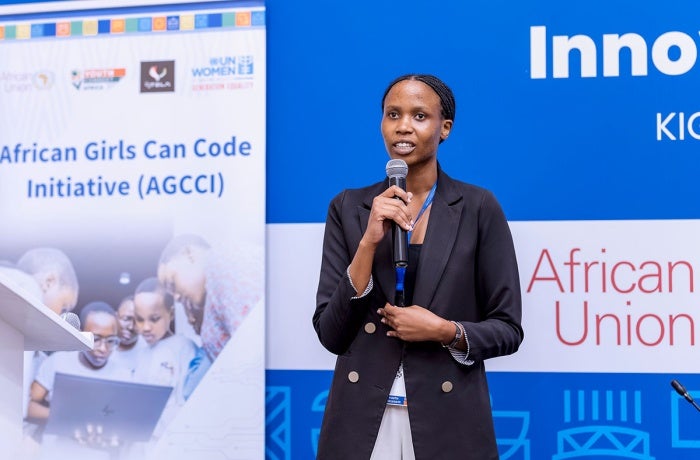African Girls Can Code Initiative builds digital skills and momentum towards a better future
In the rural Rwandan village where Chantal Niyonkuru grew up, access to digital technology was basically non-existent. But when she was selected to attend one of the country’s top high schools, Chantal took to computer science right away. After acing her exams, she told her mother she wanted to pursue a career in programming.
Her mother’s response, she says, did not surprise her: “She laughed and said ‘Do you know where you are from? That’s for students from the cities, rich families or boys,’” Chantal recounts.

Though the details vary, versions of Chantal’s story are shared by girls across Africa and around the world. A lack of exposure to tech coupled with strong gendered norms continue to keep girls out of the field from an early age. The absence of visible women role models further drives—and is cyclically driven by—their under-representation.
Even for girls who do have exposure to tech, their interest is often dampened by a lack of gender-responsive and interdisciplinary curricula. This was the experience of Sizolwethu Maphanga, whose high school in Eswatini offered classes on information and communication technologies: “I was fortunate enough to have enrolled,” she says, “but I was never that much in love with it.” The course had failed to connect technology to the real-world challenges she saw facing her community and country—a key driver of many girls’ career choices, research shows.
Everything changed for Sizolwethu when she attended a coding camp run by the African Girls Can Code Initiative (AGCCI). There, she says, her passion for tech grew as the camp “opened my eyes to the game changing innovations that can impact Africa. I learned that with little to no resources, I can make a huge difference if passion and determination are there.”
Launched in 2018 by UN Women and the African Union Commission (AUC) in collaboration with the International Telecommunication Union (ITU) and United Nations Economic Commission for Africa (UNECA), AGCCI is working to empower girls across Africa by helping them build digital literacy and computer skills and placing them on the path to tech careers.
AGCCI’s coding camp was a turning point for Chantal, too. She credits the initiative with pushing her to pursue Information Technology at the university level—despite the pressure she was receiving against it.
Furthering long-time passions for some, AGCCI has provided other girls with their first real exposure to tech. Mariam Said Muhammed, who attended a coding camp in 2019, says she had no knowledge of digital technology beforehand—let alone its potential societal applications. “The bootcamp inspired me in the world of technology and made me develop an interest in acquiring skills so that I could use them in solving the problems that face our society.” she says.
The initiative aims to train a minimum of 2,000 girls aged 17-25, setting them up for futures as computer programmers, creators and designers. Beyond establishing camps like the ones attended by Sizolwethu, Chantal and Mariam, its first phase has also included the development of a guide on mainstreaming ICT, gender and coding in national curricula across the continent, the launch of an eLearning platform and the production of a webinar series to keep learning going in the pandemic.
AGCCI works both to train and empower girls and to increase their inclusion in the tech sector more generally. “We aim to address not only the policy-level bottlenecks related to access to technology and finances but also the gender-based harmful norms and practices that hinder women and girls from pursuing STEM fields," says Awa Ndiaye-Seck, UN Women Special Representative to the African Union and UNECA.
While pursuing her own tech career, Sizolwethu has been inspired to help empower other girls as well: “I have also been actively involved in numerous policy discussions and panels for the United Nations and various other bodies, to enable more girls around the world to be exposed to and enrolled in STEM studies and professions,” she says.
For Mariam, AGCCI jump-started a passion that has developed into a career path: “I became more interested in learning about new technologies and how they work, and this became a core motivating factor for me to pursue my degree in Computer Science,” she says.
For her part, Chantal is using the skills she learned to develop applications that help her community, such as a digital system for making medical appointments, a bus booking system and more. “I can proudly say that AGCCI is the reason behind who I am today,” she says.









